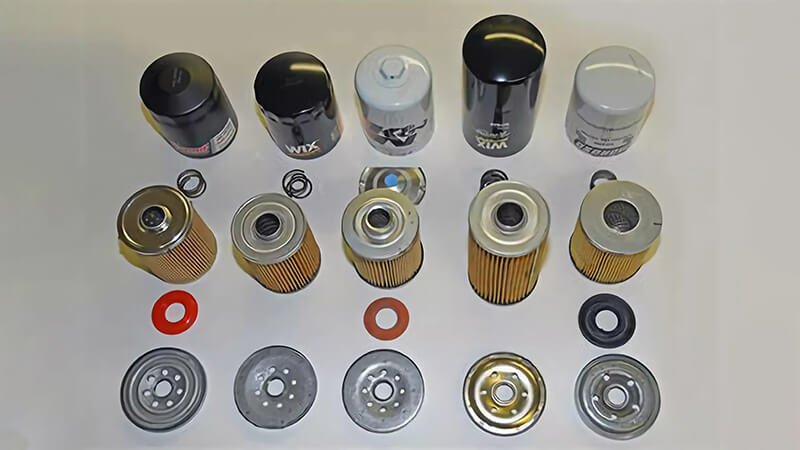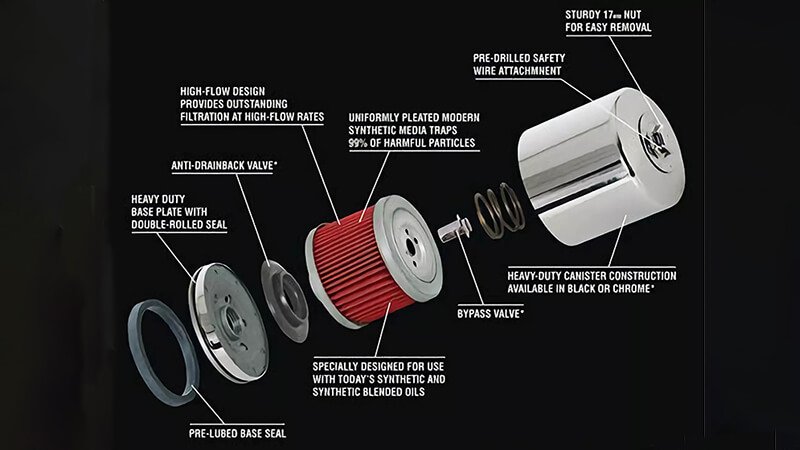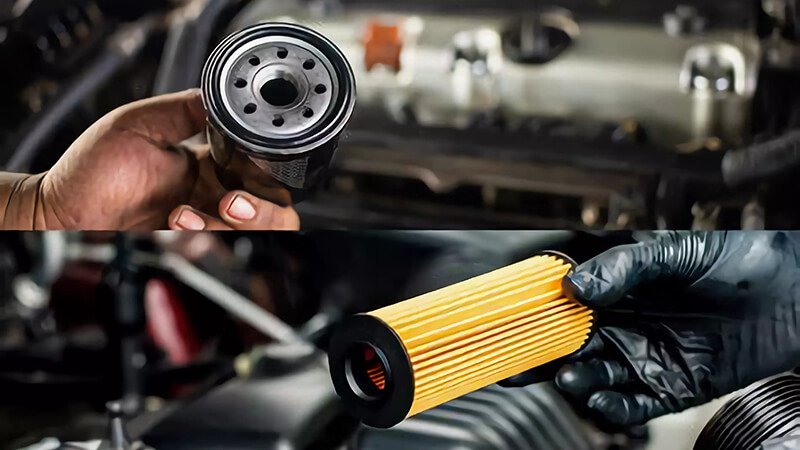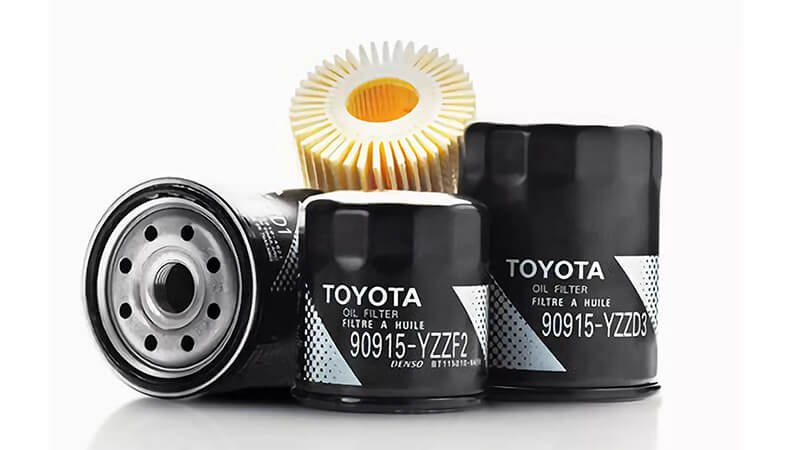Many car owners overlook the importance of regular oil and filter changes, often delaying this essential maintenance until problems arise. This common neglect can lead to severe engine damage, costly repairs, and even premature engine failure.
Regular oil and filter changes are crucial for maintaining engine health. They remove contaminants, ensure proper lubrication, and reduce wear, directly contributing to longer engine life and improved performance.
By understanding the significance of these routine tasks, we can make informed decisions that safeguard our engines and save money in the long run. Let’s dive into the details.

Do frequent oil changes extend engine life?
The short answer is yes. Frequent oil changes are one of the most effective ways to extend the life of your engine. Why? Because engine oil plays a vital role in reducing friction and dissipating heat1, both of which are crucial for the longevity of engine components.
Changing your oil regularly ensures that the engine is lubricated with clean oil, reducing wear and preventing the buildup of harmful contaminants2 that can lead to severe damage.
How Dirty Oil Harms Your Engine
Over time, oil degrades due to heat, pressure, and contamination. When oil breaks down, it loses its ability to lubricate effectively and prevent sludge formation3. This can lead to:
- Increased Friction: Without proper lubrication, moving parts grind against each other, accelerating wear and tear.
- Heat Buildup: Dirty oil is less effective at transferring heat, causing components to overheat.
- Sludge Formation: Contaminants like dust, dirt, and metal particles can turn degraded oil into sludge, clogging vital passages.
| Problem | Consequences |
|---|---|
| Friction and wear | Reduced component lifespan |
| Overheating | Increased risk of part failure |
| Sludge buildup | Blocked oil passages and damage |
Changing your oil at manufacturer-recommended intervals (or more frequently for older vehicles) prevents these issues, ensuring smooth operation and longer engine life.
Long-Term Cost Savings
While frequent oil changes may seem costly in the short term, they prevent expensive repairs down the line. For example, replacing an engine due to oil-related damage can cost thousands of dollars, whereas regular oil changes cost a fraction of that.

Why should oil filters be changed regularly in normal use?
The oil filter is just as critical as the oil itself. It acts as the engine’s defense mechanism, trapping debris and contaminants4 before they can circulate and cause harm.
Replacing the oil filter regularly ensures that the engine receives clean oil, preventing damage from unfiltered contaminants and maintaining optimal performance5.
The Science Behind Oil Filters
An oil filter traps particles as small as 10 microns, preventing them from recirculating through the engine6. However, as the filter traps more debris, it becomes clogged and loses efficiency. This can lead to:
- Restricted Oil Flow: A clogged filter can starve the engine of oil, causing components to grind together.
- Contaminated Oil Circulation: Once full, a filter may allow dirty oil to bypass it entirely, defeating its purpose.
| Oil Filter Condition | Impact on Engine Performance |
|---|---|
| Clean and effective | Provides clean oil, protects engine |
| Partially clogged | Reduced oil flow, slight inefficiency |
| Fully clogged | No filtration, severe engine damage |
When to Replace Your Oil Filter
Most experts recommend replacing the oil filter during every oil change. This ensures the filter can handle the demands of a new oil cycle. Additionally, using high-quality filters can provide better protection and extend the life of your engine.

Does oil change improve engine performance?
Absolutely. Oil changes are not just about protecting the engine; they also enhance its performance7. Clean oil reduces internal resistance, allowing the engine to operate more efficiently.
Regular oil changes optimize engine performance by minimizing friction, supporting fuel efficiency, and ensuring smooth operation of all moving parts8.
The Mechanics of Performance Improvement
Dirty oil thickens and becomes less effective at lubricating the engine. This leads to increased energy consumption as the engine works harder to overcome internal friction. Clean oil, on the other hand:
- Reduces Friction: Fresh oil provides a smoother surface for moving parts, reducing resistance9.
- Dissipates Heat Efficiently: Clean oil absorbs and transfers heat better10, preventing overheating.
- Enhances Combustion Efficiency: Reduced internal resistance improves overall power output.
| Benefit | Description |
|---|---|
| Improved fuel economy | Less energy lost to friction |
| Increased power output | More efficient combustion |
| Smoother operation | Enhanced performance and longevity |
By maintaining regular oil changes, you’ll notice not only better performance but also potential savings on fuel costs.

Will frequent oil changes clean the engine?
Frequent oil changes are an excellent way to keep your engine clean11, though they are not a replacement for deep cleaning methods. They primarily prevent the accumulation of harmful deposits.
Oil changes help maintain engine cleanliness by removing degraded oil and preventing sludge buildup12, ensuring smoother operation over time.
How Sludge Forms and How Oil Changes Prevent It
Sludge forms when oil breaks down due to high heat and contaminants. This sticky substance clogs oil passages, reducing lubrication and causing parts to overheat13. Regular oil changes remove old oil before sludge can form, keeping internal components clean.
| Cause of Sludge Formation | Preventive Measure |
|---|---|
| Degraded oil | Frequent oil changes |
| Poor-quality oil | Use high-quality, synthetic oil |
When to Consider Additional Cleaning
If you’ve neglected oil changes in the past, you may need an engine flush to remove existing sludge. However, maintaining a regular oil change schedule eliminates the need for such measures in most cases.

Conclusion
Regular oil and filter changes are the foundation of engine longevity and performance. They reduce friction, prevent sludge, and enhance efficiency, protecting your investment for years to come. By committing to these simple maintenance steps, you’ll not only extend your engine’s lifespan but also enjoy a smoother, more reliable driving experience.
-
Learn how engine oil functions to reduce friction and dissipate heat in engines, improving longevity. ↩
-
Understand how sludge forms and its impact on your car engine's efficiency and durability. ↩
-
Discover the benefits of frequent oil changes and how they protect your engine from long-term damage. ↩
-
Gain insights into the dual role of engine oil in maintaining engine efficiency and longevity. ↩
-
Understand how regular oil changes prevent buildup and enhance engine durability. ↩
-
Learn about the dangers of oil degradation and how it impacts engine performance. ↩
-
Learn how oil filters protect engines by removing harmful particles and maintaining clean oil circulation. ↩
-
Understand the benefits of regular oil filter replacement and its role in protecting engine components. ↩
-
Discover the science behind oil filters and how they keep engines running smoothly by filtering out micro-particles. ↩
-
Understand how clean oil directly enhances engine power, efficiency, and smooth operation. ↩
-
Learn how reducing friction with clean oil supports fuel economy and engine longevity. ↩
-
Explore the mechanics behind how fresh oil minimizes internal resistance and improves performance. ↩
-
Discover the role of clean oil in transferring heat efficiently and preventing engine overheating. ↩













